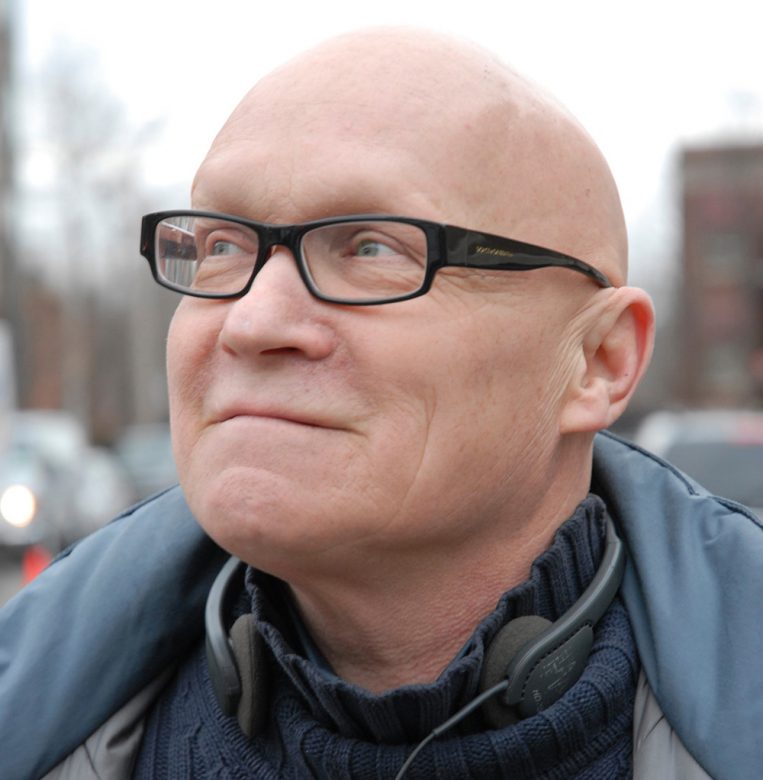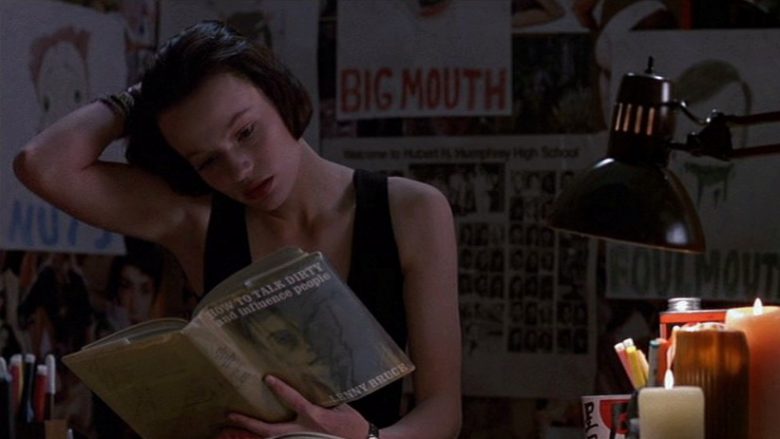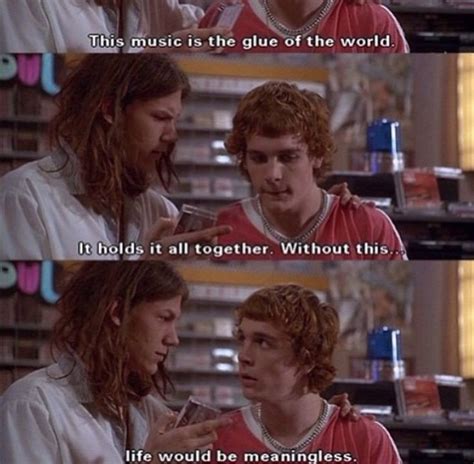
At the onset of the ’90s, writer and director Allan Moyle’s films were a precursor of a trendy period for big film companies looking to cash in on indie culture by building films around the promotion of so-called “grunge” compilation soundtracks.
Following closely behind the release of pioneering pitch-black teenage comedy Heathers, Moyle’s film Pump Up The Volume, released in 1990, delved into the underexplored dark recesses of the suburban American teenage nightmare. Up until this point, no film had so boldly presented onscreen themes of teenage sexuality, suicide, and family based trauma.
Following an initial series of inexplicable bad reviews from critics potentially not yet prepared to see these dark youth narratives played out in a pop-cultural context, Moyle retreated into a brief retirement from the industry. In the meantime, other directors made a slew of films — SFW, Reality Bites, Tank Girl — that succeeded with these same themes.
It wasn’t until five years later that Moyle returned with Empire Records, his quirky stoner comedy follow-up to PUTV. With an ensemble cast of soon-to-be-stars featuring a young Liv Tyler, there was the hope that Moyle would finally get the credit he deserved for his contributions to the genre, only to have the film buried completely and never properly released into cinemas.
Despite the impact of films like this on the industry, Moyle’s films continued to be panned by mainstream film industry critics only to develop large cult audiences in the decades to follow.
We spoke with Allan before his packed screening of Empire Records at this year’s POP Montreal Festival about staying resilient after constant rejection by the mainstream film industry, as well as to reflect on the impact his films had on the teenage movie genre he helped create a language for.
Read the full Q&A after the jump!
�
How did youth culture inform your early work? What led you to begin making films about young people that were disassociated or rejected from the mainstream culture?
You don’t think of yourself as being part of youth culture while it happens, you’re just a person who happens to be young. So now that I’m old, that question makes sense. At the time, though, I was young, I didn’t consider myself an emissary of a culture and, in fact, that’s been a problem all my life and career: I never really knew what I represented, even after making and writing a few movies.
So, now I’m 70, and I’m still trying to write about teenagers. So frankly, I don’t know what’s wrong with me. It seems like a very rich period of time where you’re confused and energized at the same time. It’s a glorious time when I meet 16-year-olds now. I think, “Hold on to that! Your youth is so precious.”
Do you spend a lot of time reflecting on your career now that you’re getting older?
No, not at all. I can’t even remember when I made [those films]. The other day somebody asked me to name something that happened in 1993, and I couldn’t think of anything! They said, “Well, you made this movie that year,” but it was all lost to me. Time is a very big abstract to me. It brings to mind that phrase “The future is yesterday.”
Now that you are seventy and still looking at youth culture, how do you stay connected with what is going on with younger generations?
I must have a 13-year-old inside me. At least my wife thinks so. That’s just my perspective coming through as a young person. I’m shocked that I’m 70. I feel like I’m in my thirties, or that secretly in my heart I’m still a teenager and I think I can relate and I can still write from the perspective well enough to be plausible. Although I have to, I have to avoid certain things in this digital age; I’m not gonna write anything in which everybody’s carrying an iPhone. I’ll skip that era.
 Samantha Mathis in Pump Up the Volume
Samantha Mathis in Pump Up the Volume
I’ve noticed that, lately, filmmakers are increasingly leaving the reality of phone culture out of their films. What do you think that allows to happen story-wise?
My movies are all about emotions and people and personalities, so I want them to communicate face-to-face. So, for me, texting is just not good for storytelling.
Underground music culture plays a huge part in your films Time’s Square, Pump Up The Volume, and Empire Records. Can you describe your personal connection to underground music culture?
I was very much into bands and live music back then, and I still am. Have you heard of Post Malone?! Apparently he’s been around for a long time, but I’ve heard a song and thought, wow, I’m really into this!
There was a decade0-long pause in your filmmaking career between making your first film Times Square (1980) and Pump Up the Volume. How did the industry expectations that were placed on you as a filmmaker change during that period?
Well, for three years, right after Times Square, I was living in Greece writing a novel. I just quit the film business completely because I was so disappointed by my experience making that film. I was kicked off the film, and it was completely re-edited. They cut out all the lesbian scenes and anything with the two main characters kissing and everything.
I thought, “Fuck this, I’ll become a novelist.” And I went to Greece and lived there for two-and-a-half years without thinking of the film business. So any changes the industry went through, it did without me. I’ve been ambivalent all my life. I actually think I’m a terrible director. I’m very good at casting, I understand scripts and I love actors, but I’m very bad at fighting for all the bureaucratic stuff.
What inspired you to take the reigns back and make Pump Up The Volume? How does an artist like yourself recover from that rejection from the industry?
Well, when I came back [from Greece] and started over, I wrote the initial script. I was talking to the people at New Line Cinema who at the time were a very small company, and they were quite nurturing. Still though, after seeing a rough cut of the film, the owner of the company said it was unreleasable. I later found out from his wife that that was his way of trying to encourage me to work harder!
I’m a Canadian though: If someone tells me my movie is unreleasable, I’m quick to believe it. It was a rough cut and he was cracking the whip and to let me know that It wasn’t altogether yet. He said “this is an emergency” and I needed to fix it in a week! At that point in editing a feature film, you don’t know what you’ve got really — there is no music for instance, and without the songs the movie isn’t alive yet.
Still, the movie bombed in the end, compared to expectations and compared to reviews, but then, luckily, just like Empire Records, it developed a new life of its own by word-of-mouth.
When it came out in 1990, Pump Up The Volume really predated the trend of music and film executives attempting to commodify alternative youth culture. During that period, film soundtracks were packaged as an entirely separate product from the film itself, with each product promoting the other. Did you get the sense that movie executives were looking to commodify that scene through filmmakers like yourself, in a similar way that happed to musical movements like Riot Grrrl or “Grunge”?
Well producers are not as interested in music as a director and the writers are. With Empire Records, though, the studio also owned a record label, and they were quite aggressive about getting songs and I was thrilled about that because usually one of the problems when editing is not being able to afford songs that I want, and then have to go to the second and third best after having watched the song I wanted in that spot in the rough cut.
So I was lucky in that case. There was one hit from the Empire Records soundtrack, so that ended up being sort of helpful, really.
In Empire Records, there are references to bands like The Shaggs, The Flying Lizards and even The Residents. These groups are comparatively obscure to the ones that appear in the actual film. Can you explain why these songs weren’t featured in the film?
My instinct leans toward songs that are instantly enjoyable. Some of the more authentic music that these kids in this record store would have actually played was a little bit too arty for me, and my taste. I didn’t write the script, so some of the songs that were referenced seemed sort of anaemic to me.
The writer of the script [Carol Heikkinen] had actually worked in a cool record store. In the end her only complaint was that there was too much pop music, but I’m the director and I had to put my own flavor to it.
 An iconic scene from Empire Records
An iconic scene from Empire Records
The film is playing at this years POP Montreal Festival. Are you going to see it with the audience?
I’ve only seen it twice because, you know, the movie didn’t receive a release. They didn’t even open it, and I was bitter about that. They also cut out some of my favorite drug-related scenes because all the producers were coke heads and they didn’t get the pot humour. In the end they chose to bury the film completely, because it costs more to release a movie than it does to make it. It was just another bitter experience.
Thankfully, over the years it developed a cult audience based on word-of-mouth, and people are starting to screen it to new audiences. I recently saw it projected at the Hollywood Forever Cemetery in Los Angeles, and the audience were yelling out lines like it was The Rocky Horror Picture Show or something!
That must be very redeeming for you after all the negativity that you encountered.
Yeah, it was. I should have watched them much earlier.
Your previous film Pump Up The Volume was considerably darker and more confrontational than the cartoon like humour in Empire Records. Following the negative reviews of Pump, was it a conscious decision to make your next film a lighter one? Did you feel like you had alienated audiences with a film that explored taboo themes such as teenage sexuality, bullying, and suicide?
Well, I made Empire Records because a good script came along, and that does’t happen often. Pump Up The Volume was originally much darker, It was about a guy announcing his own suicide over private radio: “Stay tuned folks, because tonight I might do it on the air!”
In the final film, Christian Slater‘s character has more of a social conscience. I don’t know if my desire for a middle-of-the-road fame maybe played into that. I was thinking one movie at a time. Im not the type of director who has the opportunity to pick my next project based on it being lighter or darker.
Do you feel that making these films had a hand in popularizing soundtrack-themed films?
Maybe I’ll take credit in my own mind, but no i never consciously thought that. It just makes sense to me to write with songs in mind, because it captures the mood within seconds. I think score is overused and for me is just not as much fun. The only problem is using songs costs money more and more every year, so it’s a two way street.
When you are making independent films, you better have a huge song purchase budget, because when the producers walk up to you with the long faces, it’s the music budget thats first to go. To them, when shooting, the music is invisible.
Considering the harsh reaction to Empire Records, were you pissed off when, five years later, the similarly themed film High Fidelity was released to critical acclaim?
No! I love John Cusack, and I loved the movie. I thought, “Wow, how great.” I’ve quit the business twice just because it’s so disappointing, usually. It’s so hard and I don’t feel like a very good director. The director has to win 80 percent of the battles with the forces of “No”, and it’s not just the producers who are saying no; it’s time and money, and there’s a lot of arrows all pointing to no.
It’s so trendy to complain about the state of current youth culture and millennials in the post-Internet generation. Do you like kids these days?
Most of the kids I know are all so exceptional that I don’t even see them as kids. I’m not so fond of toddlers, because I’ve never had my own kids, but once they are teenagers, they can be so advanced it can be as if they were kissed by some psychic event where they’re like blowing my mind with their sensitivity and intelligence. Especially with teenagers. They’re all in pain. They’re all tripping. They’re all asking who they are. It’s exactly the same thing as when I was that age. They are asking “who am I” and “what does it mean,” “why bother” and “I hate myself” and “I hate my nose” and things like that.
Do you ever look at the way that themes like teen violence, suicide or even gun violence resonate now, now that conversations around those topics have expanded into our every day lives?
Well… No, I don’t really. Take feminism, for instance. I often have actresses telling me that I write good female parts. I don’t know why but I can relate to women and I’m just having fun writing female characters.
What do you think would happen if you tried to make Pump Up The Volume now? How do you think the reaction would differ from when you made it in 1990?
It’s funny you ask that because just recently someone came to me and asked to do a TV version of Pump Up The Volume. I fully support it, but I’m glad I’m not doing it. I’m happy working on a new movie. Let them do it if they can. I wouldn’t. Why would you remake anything?
I’m working in that world of teen suicide again with my new film. It’s not the whole story as it is with Pump, but I’m focusing on that now. Imagine what it was like being gay for example, 20 years ago in a small town. You can have youth communities in high schools where 30 percent of them are gay. They’re so happy — I mean, they’re not happy (because they’re teenagers), but they’re not alone.
Why do you keep returning to these dark themes in your work? What are you trying to relate to an audience with your films?
Well, your answer will be in the title of my current project, which is How to Die a Happy Virgin. I’ll leave you with that.
Thanks, Allan. And remember: talk hard!
— Q&A by Kevin Hegge (@theekevinhegge)

Be the first to comment on "OMG, a Q&A with director Allan Moyle"